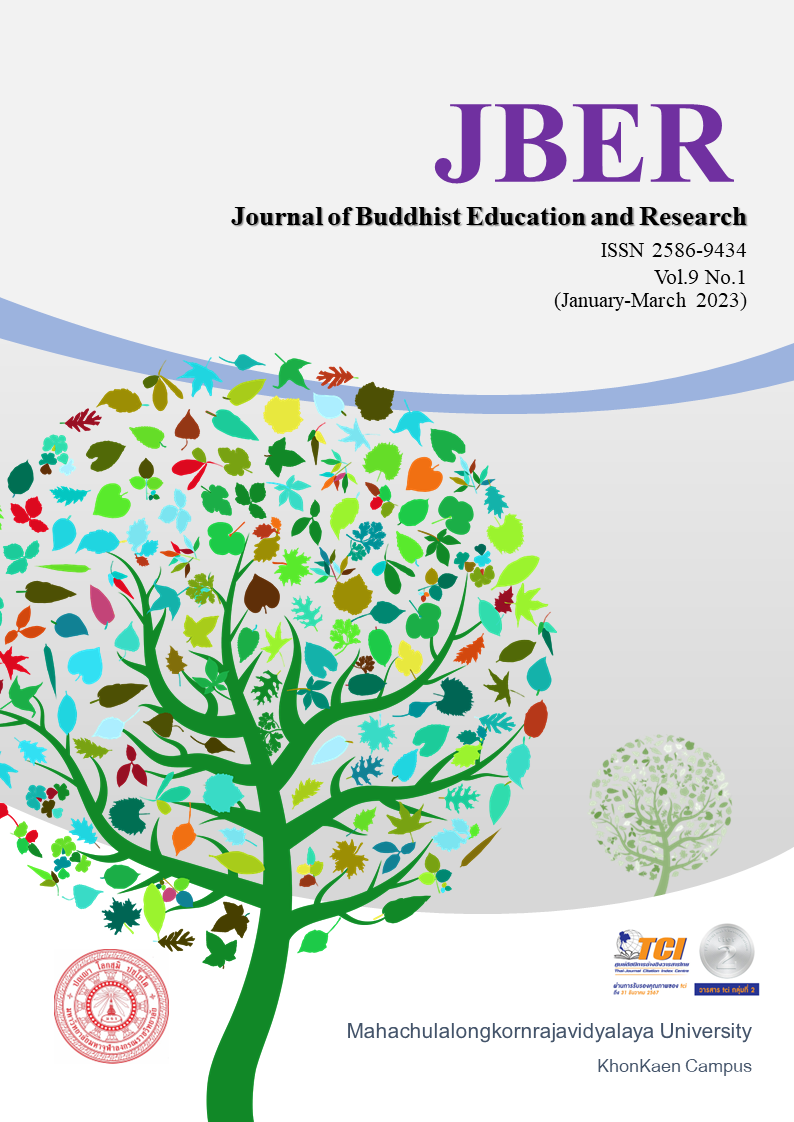Developing Critical Thinking Skills through Social Studies Education in Thai Classrooms
Keywords:
Critical thinking, Social studies, Thai education, Inquiry-based learning, Curriculum reformAbstract
This paper explores the role of social studies education in developing critical thinking skills in Thai classrooms. The study emphasizes the importance of encouraging students to analyze, question, and evaluate diverse perspectives on historical events and social issues. By incorporating inquiry-based learning, collaborative activities, and modern teaching methods, social studies can foster an environment that promotes critical thinking. Despite challenges such as traditional teaching practices and lack of resources, integrating critical thinking into the curriculum is crucial for preparing students for the complexities of the 21st-century world. The study also discusses the benefits of project-based learning, digital storytelling, and metacognitive strategies, which enhance students' analytical abilities and engagement in social studies. Recommendations for curriculum reforms and teacher training are provided to support the integration of critical thinking skills in Thai education.
References
Ambele, E. A., & Namsaeng, P. (2023). Potentials of intercultural competence in promoting critical thinking in Thai tertiary education. Open Access Publishing Group. https://core.ac.uk/download/591024797.pdf
Ann My Thai, Lowenstein, D., Rejeski, D., & Ching, D. (2009). Game changer: Investing in digital play to advance children's learning and health. Joan Ganz Cooney Center at Sesame Workshop. https://core.ac.uk/download/71351412.pdf
Bruno, J. (n.d.). The cognitive international division of labour hypothesis: What possible effects for Thai labour and education? https://core.ac.uk/download/pdf/6751682.pdf
Chanthala, C., Ponkham, K., & Santiboon, T. (2017). Affecting the activity-based on learning approaching management through the STEM education instructional method for fostering creative thinking abilities, learning achievements, and environmental perceptions in physics laboratory classes of secondary students at the 10th grade level. Open Access Publishing Group. https://core.ac.uk/download/236102284.pdf
Chatakan, W., Ekpetch, C., & Rattanaarun, P. (2023). Development of a collaborative network management model (CNMM) to improve Thai student learning quality. North American Business Press. https://core.ac.uk/download/611817806.pdf
Coleman, C., Kennedy-Clark, S., & Thai, T. (2016). Does cognition matter? Current pedagogical practice and the need for reform. ResearchOnline@ND. https://core.ac.uk/download/213607708.pdf
Di-Ibor, I., Eamsukkawat, S., Kamali, M., Raudenbush, S. W., & Taoklam, W. (n.d.). On-the-job improvements in teacher competence: Policy options and their effects on teaching and learning in Thailand. https://core.ac.uk/download/pdf/6645256.pdf
Fuhrman-Petersen, R. J. (2013). The effects of STEM inquiry practices on English language acquisition in a first-grade classroom in Thailand. UNI ScholarWorks. https://core.ac.uk/download/222995850.pdf
Hite, R., & Thompson, C. J. (2019). Activity theory as theoretical framework for analyzing and designing global K-12 collaborations in engineering: A case study of a Thai-U.S. elementary engineering project. DigitalCommons@URI. https://core.ac.uk/download/212940777.pdf
Jivaketu, P. (2016). An evaluation of teacher development in using technology during the first decade of Thai education reform 1999-2009. https://core.ac.uk/download/142065636.pdf
Kantathanawat, T., & Phurikultong, N. (2022). Flipping the undergraduate classroom to develop student analytical thinking skills. Ital Publication. https://core.ac.uk/download/524959222.pdf
Kaweera, C., & Moonma, J. (2021). Collaborative writing in EFL classroom: Comparison on group, pair, and individual writing activities in argumentative tasks. Asian Educational Journal Publishing Group. https://core.ac.uk/download/524159528.pdf
Kettle, M. (2011). Academic practice as explanatory framework: Reconceptualising international student academic engagement and university teaching. Routledge. https://core.ac.uk/download/10902296.pdf
Lynch, R., & Zuber, P. (2017). A comparative study of student academic achievement and satisfaction in Grade 4 science under traditional instruction and cooperative learning instruction methods at Sarasas Witaed Bangbon School, Thailand. Graduate School of Human Sciences. https://core.ac.uk/download/233619837.pdf
Moto, S., Pimdee, P., Rodrangsee, B., & Tuntiwongwanich, S. (2022). Development of an online active learning model using the theory of multiple intelligence to encourage Thai undergraduate student analytical thinking skills. North American Business Press. https://core.ac.uk/download/611817659.pdf
Namwong, O. (2020). Learner-centred approaches in teaching English in Thailand: A thesis presented in partial fulfillment of the requirements for the degree of Doctor of Philosophy in Education at Massey University, Manawatū, New Zealand. Massey University. https://core.ac.uk/download/355856937.pdf
Ng, R. (n.d.). A hybrid approach to case teaching. https://core.ac.uk/download/pdf/6317930.pdf
Ngoc, N. D. (2015). Factors influencing teaching for critical thinking in Vietnamese lower secondary schools: A mixed-method study focused on history. Newcastle University. https://core.ac.uk/download/153779393.pdf
Pereira, S. (2020). Metamorphic journey of a single story: Becoming a globally competent teacher. Educate. https://core.ac.uk/download/327693141.pdf
Roy Ng, S., & Liang Tan, S. (n.d.). A hybrid approach to case teaching. https://core.ac.uk/download/pdf/6317930.pdf
Sathaphon, R. (2023). An investigation of technology integration to promote Thai EFL university students’ critical thinking skills: A phenomenological study. Thammasat University. http://ethesisarchive.library.tu.ac.th/thesis/2022/TU_2022_6006320060_17354_27053.pdf
Scheyvens, R., & Wild, K. (2012). Aid, education, and adventure: Thai women’s participation in a development scholarship scheme. Institute of Development Studies, Massey University. https://core.ac.uk/download/148638685.pdf
Stone, G. (2017). Implementation of critical literacy for English writing classes in the Thai context. Assumption University. https://core.ac.uk/download/275932743.pdf
Supitsara, S. (2023). University lecturers’ perceptions, challenges, and opportunities on global citizenship education: A case of international bachelor program in Thailand. Thammasat University. http://ethesisarchive.library.tu.ac.th/thesis/2023/TU_2023_6319030158_18232_29275.pdf
Thanosawan, P. (2012). Global citizenship in Thai higher education: Case studies of a university and its affiliated international college. Faculty of Education and Social Work. https://core.ac.uk/download/41236644.pdf
Yu, A. (2018). Facilitating academic words learning: A data-driven approach using a collocation consultation system built from open access research papers. https://core.ac.uk/download/187724675.pdf
Downloads
Published
How to Cite
Issue
Section
License
Copyright (c) 2023 Author(s)

This work is licensed under a Creative Commons Attribution-NonCommercial-NoDerivatives 4.0 International License.





